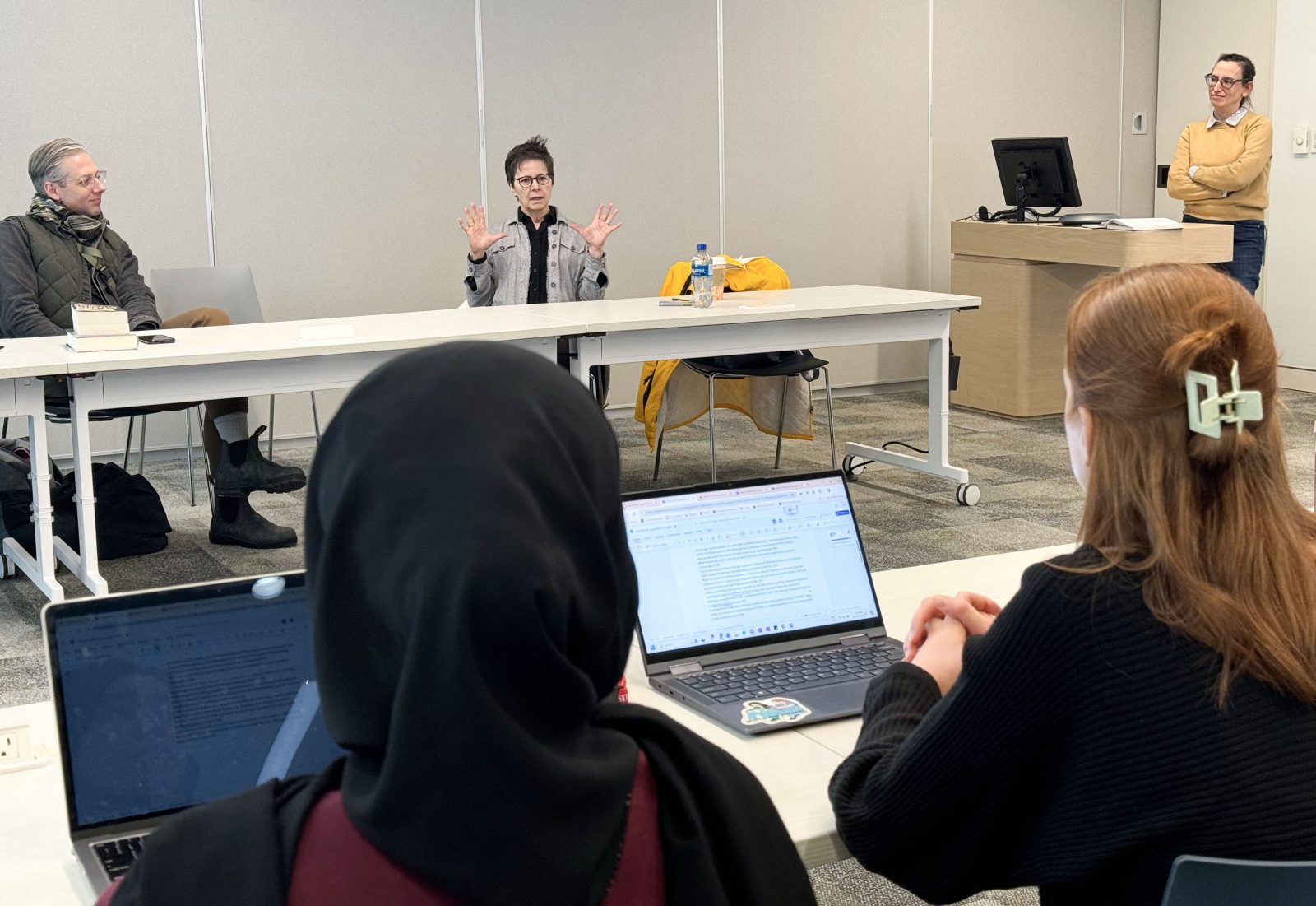
Brock University recently received a memorable visit from beloved Canadian author, actor and playwright Ann-Marie MacDonald.
The critically acclaimed artist is working with an interdisciplinary team of faculty and research assistants from the Faculties of Humanities and Social Sciences on a project, Mapping Ann-Marie MacDonald, that is breaking new ground in Canadian literary criticism.
The visit was a full circle moment for English Professor Neta Gordon, who has been writing since graduate school about MacDonald’s invitational approach to making space for marginalized voices through her books and plays.
Gordon and Aaron Mauro, Associate Professor and Chair of the Department of Digital Humanities, are co-leading the project with collaboration from Associate Professor of Geography and Tourism Studies Ebru Ustundag and Brock Librarian Tim Ribaric. The project is supported by a Government of Canada .
During her March visit , MacDonald discussed her internationally bestselling novel The Way the Crow Flies (2003), a finallist for the Giller Prize. The team is using the novel to develop a collaborative literary analysis framework and visualizations of plot, themes, character development and the connections between key characters and physical and embodied spaces in the narrative.
Gordon said these discussions will help establish new ways of communal reading that will challenge people to think about other literary works from a new perspective in the future.
“Our hope is that this will open up doors for new voices and new listeners engaging in the act of literary criticism; we want people who are not English professors to be able to read our research and understand it, and for it to be accessible,” Gordon said.
It was the newness of the idea and freshness of perspective that initially struck MacDonald and drew her to the project.
“One doesn’t always come across the powers of observation and understanding combined with creativity and a leap into an unknown collaboration,” she said. “This research is new, and the exploration across disciplines is essential to me and something that drives a lot of my work.”
When MacDonald learned the project was also driven by feminist ethos, it was a done deal.
She said the project has allowed her to revisit the fascinating mystery of how stories and ideas are communicated and shared with others in a way that delights and informs.
“As a writer, it is my job to tell stories in a way that is both welcoming and uncompromising. Academics like Neta are doing the same thing,” MacDonald said.
Gordon said the project, at its core, is student-centred in approach, providing Brock students an opportunity to contribute their valuable ideas to the field of literary criticism.
“Bringing worlds together is what I do in my work, so to see this kind of work happening at Brock in this collaborative manner is deeply gratifying and I am honoured to be a part of it,” MacDonald said.
